A festival of books KRIPOTKIN By Alfred A. Yuson (The Philippine Star)
November 23, 2009
It’s hardly a gray November in our souls, rather a delirious one, with tons of fresh literature coming off the presses soon after Lover Boy Manny Pacquiao made our year.
Somehow, it’s turned into a month-long festival rife with books, with publishers joining the yearend crunch of Yuletide sales. But let’s begin the joyful litany with a salute to our good friends Luis Francia and Jessica Hagedorn in New York, who together with the revered Carlos Bulosan make it as the three Filipino writers included in Becoming Americans: Four Centuries of Immigrant Writing, edited by Ilan Stavans and published by no less than The Library of America to support its mission.
“Eighty writers from 40 different countries reveal the full range of the immigration experience” in this 748-page volume (at $40) that compiles memoirs, novels excerpts, stories, poems, letters and journals to tell “the epic story of the many people from all over the world who have come to America to remake themselves and their lives, often overcoming many obstacles to do so.” A simple blurb from Maxine Hong Kingston declares: “Their stories are our treasured legacy.”
Bulosan, Hagedorn and Francia thus join exalted company, with the likes of John James Audubon, Charlie Chaplin, Vladimir Nabokov, Frank McCourt, Czeslaw Milosz, Jhumpa Lahiri and Joseph Brodsky, among many others. Kudos!
Barely a fortnight ago, a young writer I like very much, for his hail-fellow-well-met geniality and self-deprecating wit, launched his latest collection of superlative, ridiculously humorous pieces: I Do or I Die!: RJ Ledesma’s Imaginary Guide to Getting Married and Other Man-Made Disasters (as Told to Him by His Yaya), published by Anvil.
Chapters dwell on how highly-strung husbands-to-be unravel under the pressure of knot-tying — from planning an epic proposal or staging covert bachelor parties to pamanhikan survival tips. “The pamanhikan is an opportunity for the man’s family to formally ask his fiancee’s family for her hand in marriage,” Ledesma writes. “The hand costs three chickens. If you want to ask for her other body parts, it will cost you more poultry than that.”
Other writers could learn a thing or two from the way RJ constructs dialogue, or begins a piece: “Three hours after gangrene turned my legs into stumps, we finally escaped the gridlock that is South Superhighway Friday night traffic.” Hail, fellow Philippine STAR columnist, well done!
And now we come to the glorious week of books galore.
The UP Press launches 14 new titles today at 5 p.m. at Balay Kalinaw in the UP Diliman campus.
Bird Lands, River Nights and Other Melancholies by Jose Marte Abueg won the Gawad Likhaan: the UP Centennial Literary Prize in Poetry in English last year. Judge Ricardo M. de Ungria says of the collection, the author’s first: “The voice is unfaltering and deep, and the ear is playful with inflections and rich harmonic constructions that admit the aleatory, the allusive, the appropriated. Bird Lands... is free jazz, nujazz, and just jazz.”
Balisa by Reuel Molina Aguila is a trilogy of plays with intertwined threads that suggest a novelistic approach. The Palanca-winning three-act plays — “Satirika,” “Ligalig,” and “Balighô” — cover the cornerstones of three decades of contemporary history: Batas Militar, EDSA I, and EDSA II. It is the Filipino middle class that undergoes scrutiny, as only a brilliant playwright like Aguila can apply, with first-rate acuity.
Regarding Franz, edited by Dr. Elizabeth Arcellana Nuqui and Dr. Lydia Rodriguez Arcellana, gathers memories and recollections of family, friends, protégés, and colleagues of Francisco Arcellana, National Artist for Literature.
Huwaran/Hulmahan, atbp: The Film Writings of Johven Velasco, edited and with an introduction by Joel David, features a draft left behind by Johven Velasco (1948-2007). “Films from diverse periods and genres, along with star personas... (are subjected to) a long-overdue critical treatment that only a fan specialist with Velasco’s visionary approach could provide.”
Aves by Jerry Gracio won the UP Centennial Literary Prize for Poetry in Filipino. National Artist for Literature Virgilio S. Almario weighs in: “Isa sa pinakamatingkad na tinig sa panulaang Filipino at inaasahang magdadala ng ilaw sa milenyong ito.”
Looking for the Philippines: Travel Essays by Cristina Pantoja Hidalgo is not your ordinary collection of travel pieces, since the author revisits the places she encountered earlier, thus making it part memoir. It is her seventh such collection. “Perhaps I write about places as a way of making sense of the spaces I occupy now, these islands, which are and are not one country,” Hidalgo writes. Critic Jonathan Chua says of her work: “As in a pointillist painting, she lays out the details... until she assembles, not just a picture but a complete mood... Hidalgo manages to provoke her readers to rethink the familiar... We are introduced to a sensibility well-informed, sensitive, and sophisticated, but not unblemished by doubts.”
Unplugging the Constitution by Florin Ternal Hilbay tackles a wide range of issues — constitutional theory, adjudication, legal hermeneutics, the bar exams, marriage, psychological incapacity, free speech, presidential immunity, liberalism, church and state — and takes an unconventional and often critical view of standard legal discourse and prevailing social institutions.
XXth Century: 2 Plays by Malou Jacob dissects the violence inflicted on Filipinos by Filipinos. “Country in Search of a Hero” is a full-length satirical play on the mortal sins of the Martial Law Regime, while “A Significant Life,” a full-length dramatic play, exposes how a revolution devours its own children.
Philippine Studies: Have We Gone Beyond St. Louis?, edited by Priscelina Legasto, collects 35 essays by Philippine and US-based scholars which illustrate the dynamism and complexities of the discursive field of Philippine Studies, one that has gone beyond the classic Orientalist/racist discourses that informed the St. Louis World’s Fair of 1904 as “a crowning display of American imperial power.”
Among the eminent contributors are National Artist for Literature Bienvenido Lumbera, Marivi Soliven Blanco, Reuben Cañete, Ruth J. Pison, J. Neil Garcia, Rosario Cruz-Lucero, Nicanor Tiongson, Soledad Reyes, Vicente Rafael, Cristina Pantoja Hidalgo, Cyan Abad-Jugo, Gémino Abad, Myra Beltran, Patrick Flores, Josephine Barrios-Leblanc, Joel David, Isagani Cruz, Caroline Hau, Rolando Tolentino, Jose Wendell Capili, and the editor herself. Indeed, what sterling company!
Kalusugang Pampubliko sa Kolonyal na Maynila 1898-1918 by Dr. Ronaldo Mactal is a novel attempt by a historian at threading through the three disciplines of geography, medicine and history, while critiquing the American occupation’s manipulation of health practices.
Women’s Common Destiny by Hope Sabanpan-Yu is a groundbreaking study of maternal representations in Cebuano literature. Focusing specifically on serialized Cebuano novels by women, Yu traces the history of motherhood and examines maternal stereotypes, including the important roles played by patriarchal and societal structures.
Pag-aklas, Pagbaklas, Pagbagtas: Kritikal na Kritisismong Pampanitikan by Rolando B. Tolentino offers literary criticism by way of a political and ideological reading of the presidencies of Fidel V. Ramos, Joseph Estrada, Gloria Macapagal-Arroyo and what’s to come, vis-a-vis the Makabayan Curriculum, Enchanted Kingdom, political killings, and activism.
Philippine Short Stories 1941-1955: Part I (1941-1949), selected and edited by Leopoldo Y. Yabes, is a sequel to Philippine Short Stories: 1925-1940, which came out in 1975. It collects stories originally written in English by Filipinos, stories that reflect the ability to use a foreign language as a literary medium,
A Satire of Two Nations: Exploring Images of the Japanese in Philippine Political Cartoons by Helen Yu-Rivera “utilizes visual satire as a primary tool for discourse analysis, charting the shifting dimensions of Philippines-Japan relations as depicted in Philippine editorial cartoons from 1986 to 1998.”
Buyers at the launch will enjoy a 20-percent discount on all the new titles and the chance to have their copies autographed by the authors.
The National Book Development Board (NBDB) continues to celebrate the 13th Philippine Book Development Month with a series of activities. A special highlight is the Book and Arts Festival at Greenbelt from Nov. 25 to 29, culminating in the awarding of four winners of the Pinoy Story Writing Contest in the genres of Pinoy romance, chick lit, horror/crime anthology, and literary fiction, with each winner receiving P15,000.
Readings will spice up the four-day fest, beginning with Jimmy Abad’s poetry reading on the first day, with three of his poems displayed in panels alongside Jaime Zobel’s photographs.
On Nov. 26 from 6 to 9 p.m., Anvil Publishing Inc. and Filipinas Heritage Library will launch a dozen new books at the Greenbelt 3 lobby. Leading off the titles are elegantly designed (with cover art by Danny Dalena) recompilations of Quijano de Manila’s everlasting journalistic features, as Reportage on Crime and Reportage on Lovers by Nick Joaquin.
Gilda Cordero Fernando Sampler follows up on the beloved goddess’ recent successful art show at SLab with a collection of her trans-genre felicities. San Francisco-based Marianne Villanueva’s The Lost Language: Stories is a collection of 14 short stories that deal with displacement, geographical and otherwise, with memorable characters serving as paragons of our diaspora. New York-based Gina Apostol’s The Revolution According to Raymundo Mata is her second novel, and one I have long awaited. Her first, Bibliolepsy, won the National Book Award for Fiction in 1998. A fellow author named John Barth writes that The Revolution... “weaves the complex tangle of Philippine history, literature, and languages (along with contemporary academic scholarship) into a brilliant tour de force of a novel. Brava!”
Another short fiction collection is Flames and Other Stories by Angelo “Sarge” Lacuesta, his third, with his two previous collections, Life Before X and Other Stories and White Elephants: Stories, both winning the National Book Award in 2000 and 2005, respectively. This guy must be good.
Agreeing with a robust blurb is our common friend from the University of Iowa, Robin Hemley who’s the director of its Creative Non-Fiction program, but currently in Manila: “In these accomplished stories, Sarge Lacuesta explores with compassion and insight the yearnings of people who by and large have to learn to roll with life’s punches. They are the people we see all around us, who we often choose not to notice. Lacuesta does more than notice — he understands. I advise you to get your own copy to experience first-hand the magic of Sarge’s handicraft.”
Butterfly by Robin Lim is a first novel, while The Cebu We Know by Erma M. Cuizon is a collection of essays. I look forward to review copies of each. For her part, the lovely Davao-based author Jhoanna Lynn B. Cruz comes out with her first love book, a collection of loving essays titled Women Loving. Hmmm.
Bringing up the rear, as it were, are three new poetry titles. Pilgrim in Transit by Victor Peñaranda is his second collection, after Voyage in Dry Season — this time composed mostly of poems written in Bhutan and Macedonia, the last two places he inhabited with aplomb together with his dear wife Jo. Victor or “Bimboy” writes such luminous, luminescent poems on places, many of which are found in his bountiful heart.
Care of Light by Gémino H. Abad is the nth verse collection by this Promethean poet, who last summer did us proud like Pacquiao by winning Italy’s prestigious Feronia Prize. Then there’s Poems Singkwenta’y Cinco by yours truly, my sixth collection, and the first that’s bilingual, with 11 poems in Manileño Tagalog — plus one in Kastilaloy if we count a translation I collaborated on.
So do join us this Thursday for a wordfeast.
But wait, there’s more! At 2 p.m. on Nov. 27 at the LRTA Station on Santolan, the NBDB launches the poetry anthology and accompanying CD titled Off the Beaten Track, the second edition of its “Tulaan sa Tren” series, with the poems to be displayed for a time inside the LRT coaches, and recordings done by showbiz personalities treating the commuting public.
On Nov. 28, Adarna House brings out four new storybooks for kids at 2 p.m. on the third floor of Eastwood Mall. They include this year’s PBBY-Salanga Prize and PBBY-Alcala Prize winner, May Higante sa Aming Bahay. The event also serves as part of a benefit book drive. For every 500 pesos worth of books bought, you will be donating one storybook to UNICEF for the benefit of those affected by typhoons Ondoy and Pepeng. You may reach the publisher at www.adarna.com/ph for more details.
http://www.philstar.com/Article.aspx?articleId=525854&publicationSubCategoryId=79

Philippine Studies: Have We Gone Beyond St. Louis?, edited by Priscelina Legasto, collects 35 essays by Philippine and US-based scholars which illustrate the dynamism and complexities of the discursive field of Philippine Studies, one that has gone beyond the classic Orientalist/racist discourses that informed the St. Louis World’s Fair of 1904 as “a crowning display of American imperial power.” Among the eminent contributors are National Artist for Literature Bienvenido Lumbera, Marivi Soliven Blanco, Reuben Cañete, Ruth J. Pison, J. Neil Garcia, Rosario Cruz-Lucero, Nicanor Tiongson, Soledad Reyes, Vicente Rafael, Cristina Pantoja Hidalgo, Cyan Abad-Jugo, Gémino Abad, Myra Beltran, Patrick Flores, Josephine Barrios-Leblanc, Joel David, Isagani Cruz, Caroline Hau, Rolando Tolentino, Jose Wendell Capili, and Legasto.
It’s hardly a gray November in our souls, rather a delirious one, with tons of fresh literature coming off the presses soon after Lover Boy Manny Pacquiao made our year.
Somehow, it’s turned into a month-long festival rife with books, with publishers joining the yearend crunch of Yuletide sales. But let’s begin the joyful litany with a salute to our good friends Luis Francia and Jessica Hagedorn in New York, who together with the revered Carlos Bulosan make it as the three Filipino writers included in Becoming Americans: Four Centuries of Immigrant Writing, edited by Ilan Stavans and published by no less than The Library of America to support its mission.
“Eighty writers from 40 different countries reveal the full range of the immigration experience” in this 748-page volume (at $40) that compiles memoirs, novels excerpts, stories, poems, letters and journals to tell “the epic story of the many people from all over the world who have come to America to remake themselves and their lives, often overcoming many obstacles to do so.” A simple blurb from Maxine Hong Kingston declares: “Their stories are our treasured legacy.”
Bulosan, Hagedorn and Francia thus join exalted company, with the likes of John James Audubon, Charlie Chaplin, Vladimir Nabokov, Frank McCourt, Czeslaw Milosz, Jhumpa Lahiri and Joseph Brodsky, among many others. Kudos!
Barely a fortnight ago, a young writer I like very much, for his hail-fellow-well-met geniality and self-deprecating wit, launched his latest collection of superlative, ridiculously humorous pieces: I Do or I Die!: RJ Ledesma’s Imaginary Guide to Getting Married and Other Man-Made Disasters (as Told to Him by His Yaya), published by Anvil.
Chapters dwell on how highly-strung husbands-to-be unravel under the pressure of knot-tying — from planning an epic proposal or staging covert bachelor parties to pamanhikan survival tips. “The pamanhikan is an opportunity for the man’s family to formally ask his fiancee’s family for her hand in marriage,” Ledesma writes. “The hand costs three chickens. If you want to ask for her other body parts, it will cost you more poultry than that.”
Other writers could learn a thing or two from the way RJ constructs dialogue, or begins a piece: “Three hours after gangrene turned my legs into stumps, we finally escaped the gridlock that is South Superhighway Friday night traffic.” Hail, fellow Philippine STAR columnist, well done!
And now we come to the glorious week of books galore.
The UP Press launches 14 new titles today at 5 p.m. at Balay Kalinaw in the UP Diliman campus.
Bird Lands, River Nights and Other Melancholies by Jose Marte Abueg won the Gawad Likhaan: the UP Centennial Literary Prize in Poetry in English last year. Judge Ricardo M. de Ungria says of the collection, the author’s first: “The voice is unfaltering and deep, and the ear is playful with inflections and rich harmonic constructions that admit the aleatory, the allusive, the appropriated. Bird Lands... is free jazz, nujazz, and just jazz.”
Balisa by Reuel Molina Aguila is a trilogy of plays with intertwined threads that suggest a novelistic approach. The Palanca-winning three-act plays — “Satirika,” “Ligalig,” and “Balighô” — cover the cornerstones of three decades of contemporary history: Batas Militar, EDSA I, and EDSA II. It is the Filipino middle class that undergoes scrutiny, as only a brilliant playwright like Aguila can apply, with first-rate acuity.
Regarding Franz, edited by Dr. Elizabeth Arcellana Nuqui and Dr. Lydia Rodriguez Arcellana, gathers memories and recollections of family, friends, protégés, and colleagues of Francisco Arcellana, National Artist for Literature.
Huwaran/Hulmahan, atbp: The Film Writings of Johven Velasco, edited and with an introduction by Joel David, features a draft left behind by Johven Velasco (1948-2007). “Films from diverse periods and genres, along with star personas... (are subjected to) a long-overdue critical treatment that only a fan specialist with Velasco’s visionary approach could provide.”
Aves by Jerry Gracio won the UP Centennial Literary Prize for Poetry in Filipino. National Artist for Literature Virgilio S. Almario weighs in: “Isa sa pinakamatingkad na tinig sa panulaang Filipino at inaasahang magdadala ng ilaw sa milenyong ito.”
Looking for the Philippines: Travel Essays by Cristina Pantoja Hidalgo is not your ordinary collection of travel pieces, since the author revisits the places she encountered earlier, thus making it part memoir. It is her seventh such collection. “Perhaps I write about places as a way of making sense of the spaces I occupy now, these islands, which are and are not one country,” Hidalgo writes. Critic Jonathan Chua says of her work: “As in a pointillist painting, she lays out the details... until she assembles, not just a picture but a complete mood... Hidalgo manages to provoke her readers to rethink the familiar... We are introduced to a sensibility well-informed, sensitive, and sophisticated, but not unblemished by doubts.”
Unplugging the Constitution by Florin Ternal Hilbay tackles a wide range of issues — constitutional theory, adjudication, legal hermeneutics, the bar exams, marriage, psychological incapacity, free speech, presidential immunity, liberalism, church and state — and takes an unconventional and often critical view of standard legal discourse and prevailing social institutions.
XXth Century: 2 Plays by Malou Jacob dissects the violence inflicted on Filipinos by Filipinos. “Country in Search of a Hero” is a full-length satirical play on the mortal sins of the Martial Law Regime, while “A Significant Life,” a full-length dramatic play, exposes how a revolution devours its own children.
Philippine Studies: Have We Gone Beyond St. Louis?, edited by Priscelina Legasto, collects 35 essays by Philippine and US-based scholars which illustrate the dynamism and complexities of the discursive field of Philippine Studies, one that has gone beyond the classic Orientalist/racist discourses that informed the St. Louis World’s Fair of 1904 as “a crowning display of American imperial power.”
Among the eminent contributors are National Artist for Literature Bienvenido Lumbera, Marivi Soliven Blanco, Reuben Cañete, Ruth J. Pison, J. Neil Garcia, Rosario Cruz-Lucero, Nicanor Tiongson, Soledad Reyes, Vicente Rafael, Cristina Pantoja Hidalgo, Cyan Abad-Jugo, Gémino Abad, Myra Beltran, Patrick Flores, Josephine Barrios-Leblanc, Joel David, Isagani Cruz, Caroline Hau, Rolando Tolentino, Jose Wendell Capili, and the editor herself. Indeed, what sterling company!
Kalusugang Pampubliko sa Kolonyal na Maynila 1898-1918 by Dr. Ronaldo Mactal is a novel attempt by a historian at threading through the three disciplines of geography, medicine and history, while critiquing the American occupation’s manipulation of health practices.
Women’s Common Destiny by Hope Sabanpan-Yu is a groundbreaking study of maternal representations in Cebuano literature. Focusing specifically on serialized Cebuano novels by women, Yu traces the history of motherhood and examines maternal stereotypes, including the important roles played by patriarchal and societal structures.
Pag-aklas, Pagbaklas, Pagbagtas: Kritikal na Kritisismong Pampanitikan by Rolando B. Tolentino offers literary criticism by way of a political and ideological reading of the presidencies of Fidel V. Ramos, Joseph Estrada, Gloria Macapagal-Arroyo and what’s to come, vis-a-vis the Makabayan Curriculum, Enchanted Kingdom, political killings, and activism.
Philippine Short Stories 1941-1955: Part I (1941-1949), selected and edited by Leopoldo Y. Yabes, is a sequel to Philippine Short Stories: 1925-1940, which came out in 1975. It collects stories originally written in English by Filipinos, stories that reflect the ability to use a foreign language as a literary medium,
A Satire of Two Nations: Exploring Images of the Japanese in Philippine Political Cartoons by Helen Yu-Rivera “utilizes visual satire as a primary tool for discourse analysis, charting the shifting dimensions of Philippines-Japan relations as depicted in Philippine editorial cartoons from 1986 to 1998.”
Buyers at the launch will enjoy a 20-percent discount on all the new titles and the chance to have their copies autographed by the authors.
The National Book Development Board (NBDB) continues to celebrate the 13th Philippine Book Development Month with a series of activities. A special highlight is the Book and Arts Festival at Greenbelt from Nov. 25 to 29, culminating in the awarding of four winners of the Pinoy Story Writing Contest in the genres of Pinoy romance, chick lit, horror/crime anthology, and literary fiction, with each winner receiving P15,000.
Readings will spice up the four-day fest, beginning with Jimmy Abad’s poetry reading on the first day, with three of his poems displayed in panels alongside Jaime Zobel’s photographs.
On Nov. 26 from 6 to 9 p.m., Anvil Publishing Inc. and Filipinas Heritage Library will launch a dozen new books at the Greenbelt 3 lobby. Leading off the titles are elegantly designed (with cover art by Danny Dalena) recompilations of Quijano de Manila’s everlasting journalistic features, as Reportage on Crime and Reportage on Lovers by Nick Joaquin.
Gilda Cordero Fernando Sampler follows up on the beloved goddess’ recent successful art show at SLab with a collection of her trans-genre felicities. San Francisco-based Marianne Villanueva’s The Lost Language: Stories is a collection of 14 short stories that deal with displacement, geographical and otherwise, with memorable characters serving as paragons of our diaspora. New York-based Gina Apostol’s The Revolution According to Raymundo Mata is her second novel, and one I have long awaited. Her first, Bibliolepsy, won the National Book Award for Fiction in 1998. A fellow author named John Barth writes that The Revolution... “weaves the complex tangle of Philippine history, literature, and languages (along with contemporary academic scholarship) into a brilliant tour de force of a novel. Brava!”
Another short fiction collection is Flames and Other Stories by Angelo “Sarge” Lacuesta, his third, with his two previous collections, Life Before X and Other Stories and White Elephants: Stories, both winning the National Book Award in 2000 and 2005, respectively. This guy must be good.
Agreeing with a robust blurb is our common friend from the University of Iowa, Robin Hemley who’s the director of its Creative Non-Fiction program, but currently in Manila: “In these accomplished stories, Sarge Lacuesta explores with compassion and insight the yearnings of people who by and large have to learn to roll with life’s punches. They are the people we see all around us, who we often choose not to notice. Lacuesta does more than notice — he understands. I advise you to get your own copy to experience first-hand the magic of Sarge’s handicraft.”
Butterfly by Robin Lim is a first novel, while The Cebu We Know by Erma M. Cuizon is a collection of essays. I look forward to review copies of each. For her part, the lovely Davao-based author Jhoanna Lynn B. Cruz comes out with her first love book, a collection of loving essays titled Women Loving. Hmmm.
Bringing up the rear, as it were, are three new poetry titles. Pilgrim in Transit by Victor Peñaranda is his second collection, after Voyage in Dry Season — this time composed mostly of poems written in Bhutan and Macedonia, the last two places he inhabited with aplomb together with his dear wife Jo. Victor or “Bimboy” writes such luminous, luminescent poems on places, many of which are found in his bountiful heart.
Care of Light by Gémino H. Abad is the nth verse collection by this Promethean poet, who last summer did us proud like Pacquiao by winning Italy’s prestigious Feronia Prize. Then there’s Poems Singkwenta’y Cinco by yours truly, my sixth collection, and the first that’s bilingual, with 11 poems in Manileño Tagalog — plus one in Kastilaloy if we count a translation I collaborated on.
So do join us this Thursday for a wordfeast.
But wait, there’s more! At 2 p.m. on Nov. 27 at the LRTA Station on Santolan, the NBDB launches the poetry anthology and accompanying CD titled Off the Beaten Track, the second edition of its “Tulaan sa Tren” series, with the poems to be displayed for a time inside the LRT coaches, and recordings done by showbiz personalities treating the commuting public.
On Nov. 28, Adarna House brings out four new storybooks for kids at 2 p.m. on the third floor of Eastwood Mall. They include this year’s PBBY-Salanga Prize and PBBY-Alcala Prize winner, May Higante sa Aming Bahay. The event also serves as part of a benefit book drive. For every 500 pesos worth of books bought, you will be donating one storybook to UNICEF for the benefit of those affected by typhoons Ondoy and Pepeng. You may reach the publisher at www.adarna.com/ph for more details.
http://www.philstar.com/Ar

Philippine Studies: Have We Gone Beyond St. Louis?, edited by Priscelina Legasto, collects 35 essays by Philippine and US-based scholars which illustrate the dynamism and complexities of the discursive field of Philippine Studies, one that has gone beyond the classic Orientalist/racist discourses that informed the St. Louis World’s Fair of 1904 as “a crowning display of American imperial power.” Among the eminent contributors are National Artist for Literature Bienvenido Lumbera, Marivi Soliven Blanco, Reuben Cañete, Ruth J. Pison, J. Neil Garcia, Rosario Cruz-Lucero, Nicanor Tiongson, Soledad Reyes, Vicente Rafael, Cristina Pantoja Hidalgo, Cyan Abad-Jugo, Gémino Abad, Myra Beltran, Patrick Flores, Josephine Barrios-Leblanc, Joel David, Isagani Cruz, Caroline Hau, Rolando Tolentino, Jose Wendell Capili, and Legasto.





























































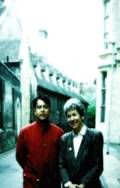

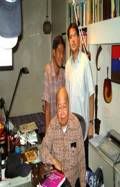


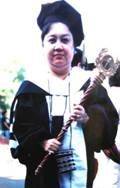


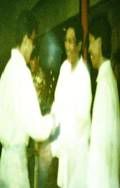

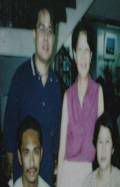
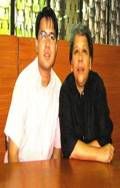
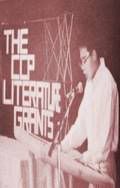


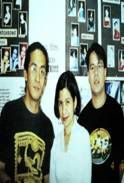


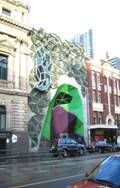











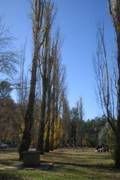






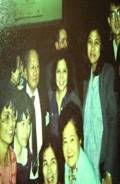
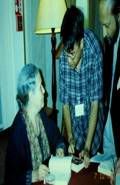
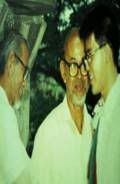
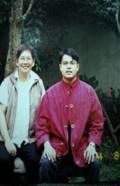

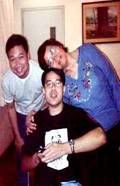
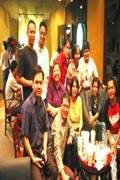

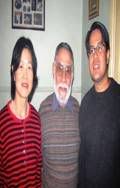
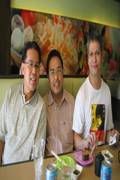
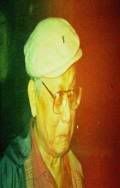
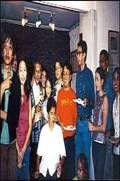
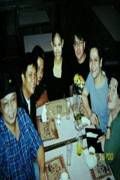
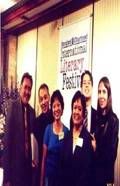
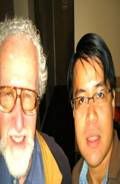


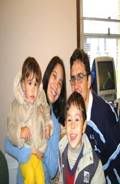
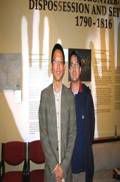
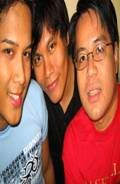

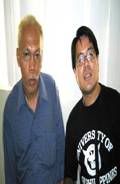
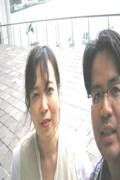
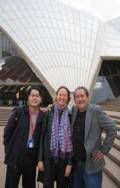
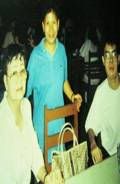

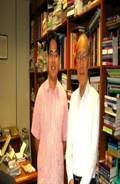
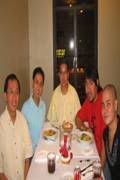
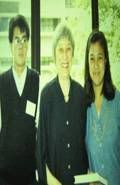

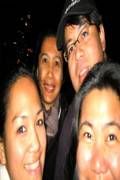
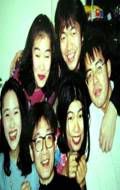

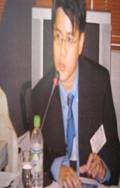






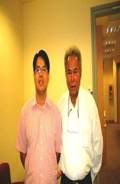

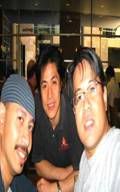
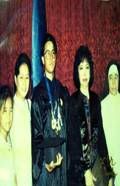
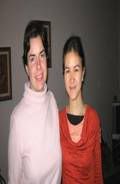

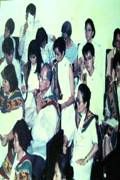
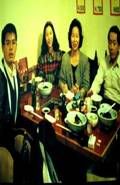
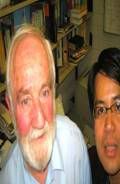


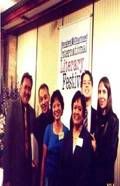




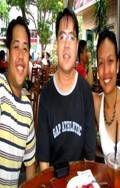








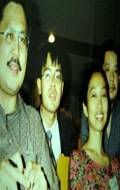

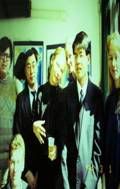
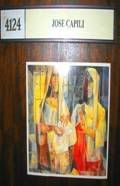


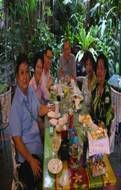
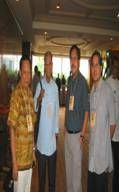
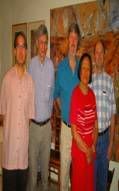
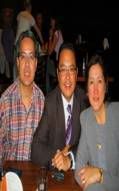

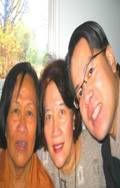
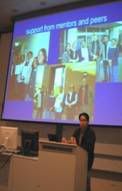
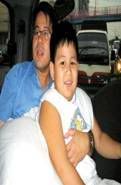
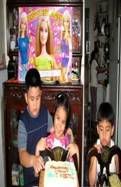
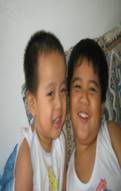

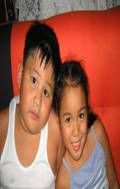


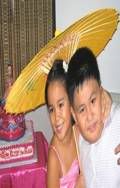
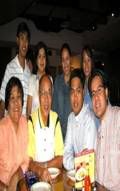
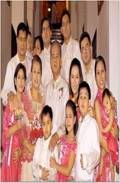







0 Comments:
Post a Comment
<< Home